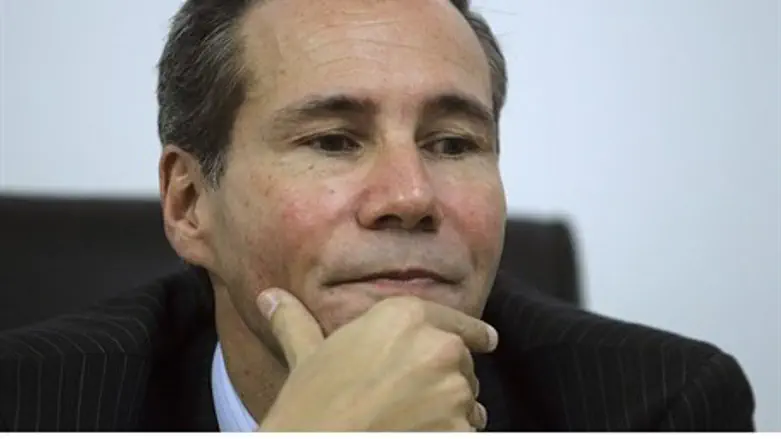
Argentina's former president Carlos Menem went on trial Thursday with 12 co-accused charged with obstructing the investigation into the 1994 bombing of a Buenos Aires Jewish center, which killed 85 people.
The bombing by Iran-proxy Hezbollah terrorists, the deadliest terror attack in Argentine history, still haunts the country two decades later.
It recaptured the headlines this year when the prosecutor leading the investigation, Alberto Nisman, died in murky circumstances.
Menem, who ruled from 1989 to 1999 and is now an 85-year-old senator, was absent from the federal criminal court in Buenos Aires as the trial got under way, drawing jeers from some of those in attendance.
His lawyer said he was unable to attend because of health problems.
Menem has already been convicted in a separate case of trafficking arms to Croatia and Ecuador, but has never served his seven-year sentence, thanks to his immunity as a senator.
In the current case, the former president is charged with ordering judge Juan Jose Galeano - also on trial - to drop the so-called "Syrian trail," which led investigators to suspect late Syrian president Hafez al-Assad of involvement in the bombing plot.
During the initial probe, investigators hypothesized Assad may have ordered the bombing to take revenge on Menem for reneging on a promise to sell Argentine-manufactured arms to Syria after coming under pressure from the United States.
Menem, who is of Syrian origin, allegedly told Galeano to back off investigations into Alberto Kanoore Edul, a fellow Syrian-Argentine whose family had ties to the president's.
The accused also include two former prosecutors; Menem's intelligence chief, Hugo Anzorreguy; and a fence for stolen cars named Carlos Telleldin who supplied the pickup truck used in the bombing.
Judge Galeano is accused of paying Telleldin a $400,000 bribe to falsely accuse 10 police officers of involvement in the bombing.
The initial investigation, which Galeano oversaw from 1994 to 2003, resulted in a chaotic trial that was thrown out halfway through in 2004 on grounds of serious procedural violations. All those accused were acquitted, including the police officers.
The investigation was then assigned to Nisman, the late prosecutor, who proved the attack was in fact carried out by the Lebanese Shi'ite terror group Hezbollah on orders from Iran.
In 2007, Nisman ordered arrest warrants for former Iranian president Akbar Hashemi Rafsanjani and other high-ranking Iranian officials.
In 2013, Argentina and Iran reached a deal for the suspects to instead be investigated by a joint commission.
Nisman alleged the deal was a conspiracy between the Iranians and members of current Argentine President Cristina Kirchner's government. Last January he filed a report accusing Kirchner of protecting the Iranian suspects in exchange for oil and trade benefits.
He was due to present his findings to Argentina's Congress when he was found dead in his bathroom with a bullet through the head on January 18.
The investigation into his death is ongoing. His case against Kirchner has since been thrown out for lack of evidence, a decision upheld by two appeals courts.
AFP contributed to this report.